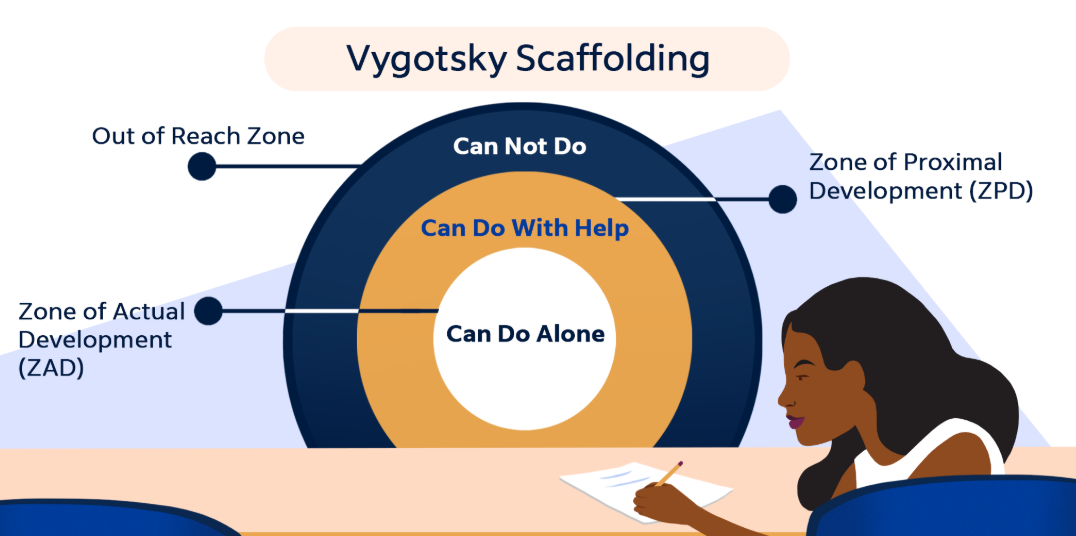The Leader’s Role in the Zone of Proximal Development

David LeBlanc, Aug. 29, 2025
As leaders, one of our greatest responsibilities is to create conditions for our people to grow. Not just to do their jobs well today, but to stretch into who they can become tomorrow.
A useful way to think about this comes from the psychologist Lev Vygotsky, who described the Zone of Proximal Development (ZPD). In simple terms, the ZPD is the sweet spot between what someone can already do confidently on their own and what feels completely out of reach. It’s the place where, with the right guidance, support, and encouragement, people can take on challenges just beyond their current ability—and succeed.
Why this matters for leaders
When work is too easy, people get bored. When it’s too hard, they get frustrated or stuck. But when we set the stage for people to operate in that “just right” zone—the ZPD—they’re more engaged, motivated, and likely to grow. For leaders, this isn’t about pushing people recklessly; it’s about being intentional in how we stretch them.
Creating the conditions for growth
So how do leaders help their people find and thrive in their ZPD?
- Set the right challenge. Assign tasks that stretch skills without overwhelming. Think: one step beyond their current comfort zone.
- Be present with support. Offer guidance, coaching conversations, and feedback along the way. Your presence communicates, “I believe you can do this.”
- Build confidence. Acknowledge progress and effort, not just results. People build courage to keep stretching when they know their growth is noticed.
- Create safety. Learning comes with missteps. When people know they won’t be punished for trying something new, they’re more willing to take the risk.
- Balance stretch and stability. Not everything should be at the edge. People need a rhythm of mastering what they’ve learned, then moving on to the next challenge.
The leader as coach
Coaching is at the heart of leading in the ZPD. Coaching means asking good questions, listening deeply, and helping people reflect on what they’re learning as they stretch. It means focusing less on “fixing” and more on unlocking potential.
You don’t need to be an expert in everything your team does—you need to create the environment where they’re safe to learn, willing to take risks, and supported to achieve more than they thought possible.
A reflection for you
Think about your team right now. Where are they?
- Who might be stuck doing work that’s too easy?
- Who’s been thrown into something overwhelming without enough support?
- And who’s right at the edge of their ZPD, waiting for you to lean in with encouragement, feedback, or a coaching question?
That’s your opportunity. As a leader, your job is to tune the challenge, offer the right support, and create the conditions for growth. When you do, you’re not just developing skills—you’re building confidence, resilience, and a team that’s ready for the future.





